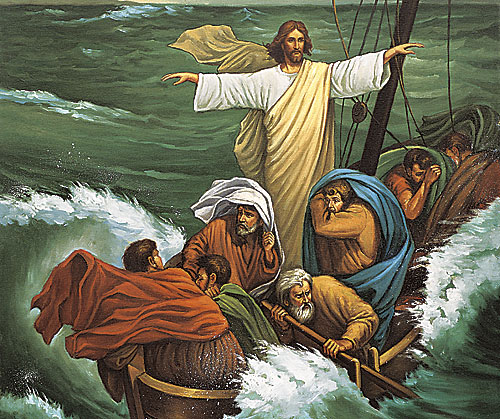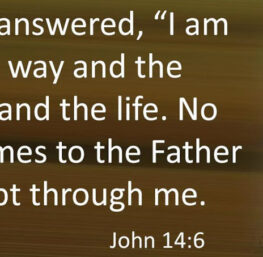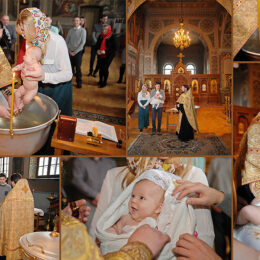 When one forgets that our lives are in the hands of the Lord we tend to presume a certain “exemption” from life’s trials. It is then difficult to be able to live through difficult experiences and to view them as an opportunity to express our faith and our faithful trust in the Lord who never leaves us without consolation.
When one forgets that our lives are in the hands of the Lord we tend to presume a certain “exemption” from life’s trials. It is then difficult to be able to live through difficult experiences and to view them as an opportunity to express our faith and our faithful trust in the Lord who never leaves us without consolation.
Last Sunday’s liturgy spoke of the mustard seed that was seemingly unimportant, but grew to become a tree in which the birds of the air found rest. Similarly, in this week’s liturgy, a man’s faith, whilst seeming “small” or weak, is able to recognise God’s power over evil and generate hope and consolation in our turbulent lives. This hope and consolation comes from Christ’s presence in history!
Today’s liturgy is dominated by the account of the calming of the sea. St Mark’s account seems to be the ideal companion for the first reading. Job’s outburst calls to God for an explanation of his suffering to which God responds by reminding him of His omnipotence which dominates everything, even the forces of nature. “Who pent up the sea behind closed doors?” (Job 38:8)
In the preceding contrapuntal rhythm, the narration alternates between God and man and his fear.
The fishermen of Galilee are resigned, they lay down their resistance when faced with fear that is mixed with a certain dismay at the vision of Jesus sleeping in the boat. They awake Him saying: “Do you not care that we are going down?” (Mark 5:39). They feel that He is “detached” from their difficulty as often happens in human history. Christ’s “detachment” is the measure of man’s faith. The disciples of yesterday are like those of today who perceive Christ as a real presence in their lives and He is never detached from them!
The guarantee of salvation is in staying with Him in the boat, notwithstanding the difficulties.
When one forgets that our lives are in the hands of the Lord we tend to presume a certain “exemption” from life’s trials. It is then difficult to be able to live through difficult experiences and to view them as an opportunity to express our faith and our faithful trust in the Lord who never leaves us without consolation.
The Lord Jesus reprimands the disciples not so much for their understandable human fear, but for their incapability to trust in Him, because they think that Christ is absent in their lives. Where can we find the measure of their confidence if not in the disciples last question: ‘Who can this be?’ (Mark 5: 41). In that question and from that question is the man’s entire religious consciousness.
According to the Fathers of the Church the boat that was “almost swamped” (Mark 5:37) is the image of the Church that travels through the storms of the human history. Rightly, when we lose Christ as our life’s “standard”, the parameter against which every choice and our very reason for being is compared, the storm seems to become increasingly aggressive.
When we make the error to think of the Church without Christ, life becomes subject to every violent wind.
When we make the error to think of the Church without Christ, life becomes subject to every violent wind. “He is the measure of true humanism. An “adult” faith is not a faith that follows the trends of fashion and the latest novelty; a mature adult faith is deeply rooted in friendship with Christ. It is this friendship that opens us up to all that is good and gives us a criterion by which to distinguish the true from the false, and deceit from truth. We must develop this adult faith; we must guide the flock of Christ to this faith.” (Cardinal J. Ratzinger, Homily of the Holy Mass Pro Eligendo Romano Pontifice)
The guarantee of salvation is in staying with Him in the boat, notwithstanding the difficulties. The invocation, veneration and love of His holy name is the guarantee that He won’t ever deny His guidance to those He has established on the rock of His love.
Let us ask the Holy Virgin, Mater Ecclesiae, to always guard us, and to obtain for us the grace to withstand the violent winds that incessantly attack the Church so that guided by Peter we can obtain an authentic holy life.
HT: Catholic Online (6/24/2012)




